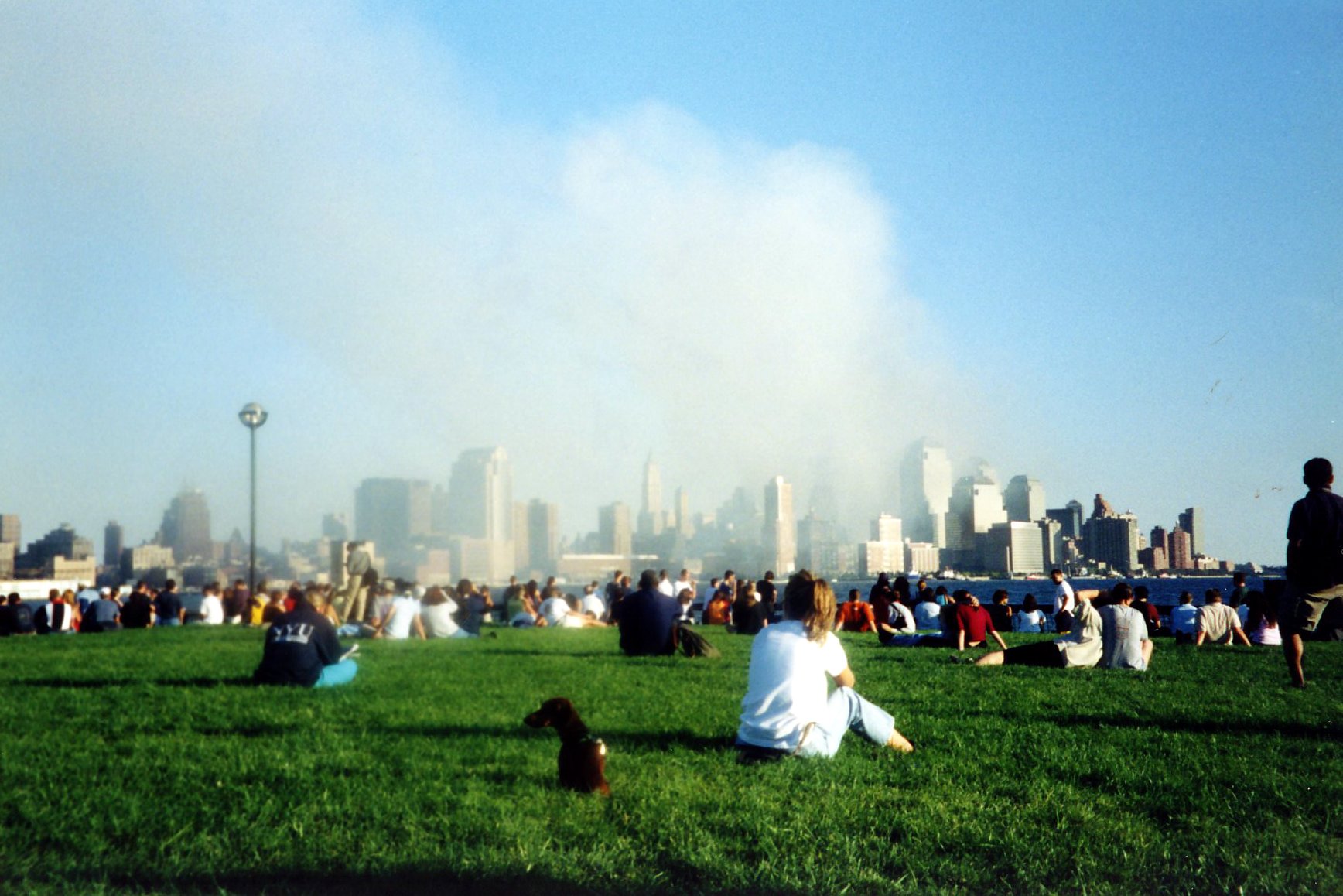9/11 essay
One of the more poignant stories I’ve heard this week, as the media performs its annual retrospective of terror, is an NPR StoryCorps interview with Vaughn Allex, the poor fellow working the American Airlines front desk who checked in everyone on Flight 77. He remembered all of the other people he’d checked in—an older couple, a student tour group—and two men running late, who turned out to be the terrorists responsible for crashing the plane into the Pentagon. His guilt was like a millstone about his neck.
Then there was another profile, this time in Esquire, this time about the iconic photograph Richard Drew captured of a man hurtling through space after jumping from the molten crown of the Twin Towers. Its subject, dubbed “the Falling Man,” inspired a search among that Tuesday morning’s victims to uncover an identity—a name, a story, anything that would fill in the heart-stopping vacuum of space in which he dives death-ward.
Politico ran a timeline narrative that told the story of the corps traveling with President Bush in Florida, a step-by-step account built by interviews of Andrew Card, Ari Fleischer, Mike Morell, Karl Rove, presidential pilot Col. Mark Tillman, and many others. The most compelling testament of how much things can change in fifteen years was the relative lack of information available to the aloft Air Force One, where over-the-air television was the only source of images from the attacks. While the plane crisscrossed the country, the signal faded in and out.
As our country has moved onward from the smoky ruins of the collapsed buildings, leaving behind the hole in the side of the Pentagon and the charred pit in Pennsylvania, our pause in mourning this day has shifted, too. We no longer see stories focused tightly in on victims’ faces. Now we tell them through the lens of 9/11’s observers and participants.
Beyond remembering where you were on the morning of September 11, 2001, do you remember any of the decisions you made that day?
I remember feeling compelled to make a single phone call to my relatives in New Jersey. I remember speaking at an impromptu gathering on the quad at my university. I remember flipping through all of the cable channels and watching the same story over and over, from MTV to the Home Shopping Network. I remember driving to the store and buying an American flag.
Which is to say, my decisions don’t feel like they really amounted to much. They weren’t like Allex’s decision to check in the terrorists and make sure they made their flight. Or the Secret Service’s compulsive response to secret the president away, even as the country ached for some confirmation the government had not been decapitated. Or Drew’s decision to raise his camera to the sky and record what he saw, to have the presence of mind in the tragic history unfolding to, as Esquire put it, “attend to its manufacture.”
We all contributed, though—and we still do. We are stewards of the new America born that day.
My friend, the writer Brittany Harrison, who like me came of age in the 1990s, noted that if she’d known what a golden sliver of relatively peaceful history that decade would turn out to be, she’d have taken it differently. “Growing up in that decade was like being a cat who finds a warm patch of sunlight streaming in from the window: we assumed it was forever,” she said. “We didn’t see any reason why the passage of time would take us to a less comfortable place.”
Now, those of us who split that generational difference between X and Millennial are in what feels like the unlikely even if inevitable position of being grown-ups. And we are grown-ups in a mildly frightening time. We wear our adulthood like the oversized shoes we buy for our own children so they don’t outgrow them so fast.
Terrorism has existed over the past 15 years as a sort of background noise, a signal that occasionally roars but mostly exists as an electric buzz. In the meantime, others have been trapped in collapsing housing markets, or suffocated by the dying breaths of American manufacturing. Others have watched the anti-establishment Godzilla devour one venerable institution after another: Protestantism, civic orders, media goliaths, corporate patriarchs, mainstream political parties.
In a world that is particularly flat, we have ruthlessly reordered ourselves around retrenched poles. We live in real and digital chambers that insulate us from the others. We grow more and more convinced we are right.
This week at the county fair, a man walked up to a table the local Democrats had set up, accosting them for being un-American, blaming them for the downfall of the country. A veteran sitting at the table had enough and told the man to move on. The man punched the veteran. Think about this: before a crowd enjoying fried Oreos and merry-go-rounds, a Trump supporter punched a Democrat military veteran in the face. This feels very different.
Which brings me back to my point. We are all stewards, agents of this history in progress, and we have a job to do. It’s up to us to keep moving, to decide what is essential as we go. And to look for ways to join our tribes with others so that we can regain a common fluency. Time to build–or rebuild–our own establishments.






Leave a Reply